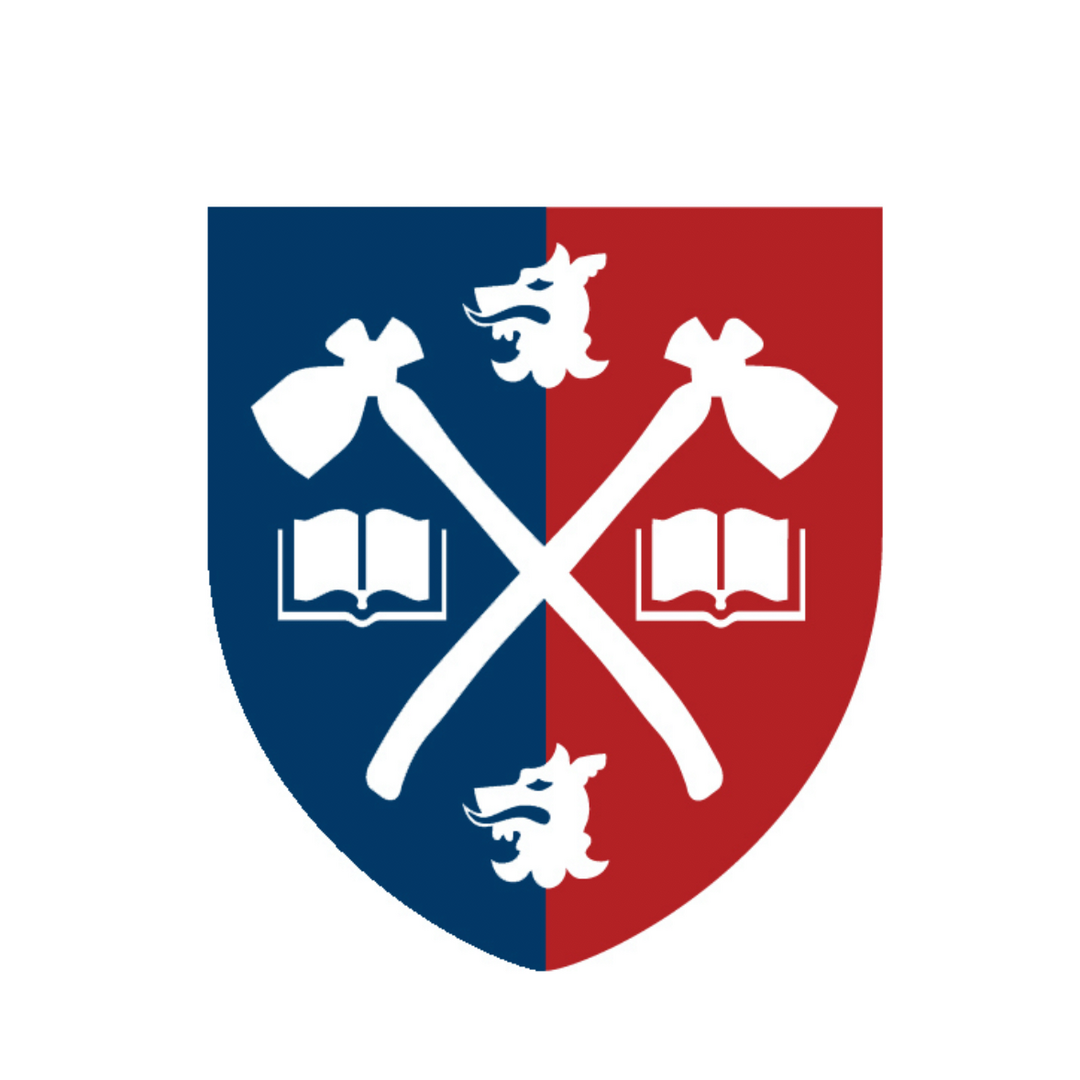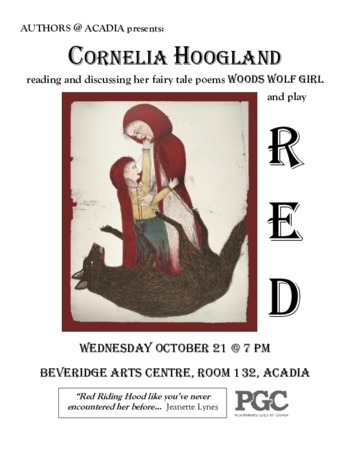Wednesday October 21, 2015 7pm
Literary
[email protected]
(902) 585-1502
Bio Note: “Sea Level” (Baseline Press, 2013), was short-listed for the CBC Nonfiction Literary Awards in 2012. Cornelia’s 6th book “Woods Wolf Girl” (Wolsak and Wynn, 2011), was one of five finalists for the Relit Best Book of 2011 National Poetry Award. “Red Riding Hood like you've never encountered her before. Hoogland has nailed it in this chilling contemporary re-telling of the age-old tale. Layered and smart as hell.” (Jeanette Lynes) Her play, RED, based on the tale, premiered in London with Fountainhead Theatre in 2013 (John Gerry, directing). Cornelia founded–and is the past artistic director of–Poetry London in London, Ontario. She is currently the artistic director of Poetry* Hornby Island, where she lives with her visual artist husband Ted Goodden, and dog.
Woods Wolf Girl site http://redridinghood2011.wordpress.com
Hoogland’s home website www.corneliahoogland.net
Presentation: The Secret Life of Fairy Tales:
“The fairy tale, which to this day is the first tutor of children
because it was once the first tutor of mankind, secretly lives on in the story.” Walter Benjamin
There is a critical under-appreciation of fairy tales even among fiction writers who unwittingly use the tales’ widely adaptable narrative styles, motifs, tropes and techniques in their work (not to mention headline, romance, advertisement, science fiction and other genres that rely on audiences’ prior knowledge, and instant-albeit subconscious- recognition of fairy tales’ abbreviated and deliberate gestures.) Undoubtedly, the tales’ close association with children and females has played a role in their under-appreciation.
Fairy tales have been rewritten and reinterpreted for over 400 years. They’re most often valued or disparaged for their contents, but at their heart are rules. You are the youngest son or daughter, or you aren’t. You are pure at heart or you aren’t. Even if you are pure at heart, or a princess, or not-so-pure, but simply lucky–you may still find yourself sitting on a rock, crying. In his book, The European Folktale, Max Luthi lays out four important features of traditional fairy tale form: one-dimensionality; depthlessness; abstract style; and isolation and universal interconnection.
In this seminar, I discuss the ways these elements function in traditional tales as well in contemporary writing, with special attention to the tale Red Riding Hood. The more we can tease out the similarities and differences among tales, the closer we can get to the power and the meanings of the tale. After tens of thousands of retellings, what remains in the tale? What changes? What do contemporary versions say about who we are? What is dangerous? Who is dangerous?
[email protected]
(902) 585-1502
Bio Note: “Sea Level” (Baseline Press, 2013), was short-listed for the CBC Nonfiction Literary Awards in 2012. Cornelia’s 6th book “Woods Wolf Girl” (Wolsak and Wynn, 2011), was one of five finalists for the Relit Best Book of 2011 National Poetry Award. “Red Riding Hood like you've never encountered her before. Hoogland has nailed it in this chilling contemporary re-telling of the age-old tale. Layered and smart as hell.” (Jeanette Lynes) Her play, RED, based on the tale, premiered in London with Fountainhead Theatre in 2013 (John Gerry, directing). Cornelia founded–and is the past artistic director of–Poetry London in London, Ontario. She is currently the artistic director of Poetry* Hornby Island, where she lives with her visual artist husband Ted Goodden, and dog.
Woods Wolf Girl site http://redridinghood2011.wordpress.com
Hoogland’s home website www.corneliahoogland.net
Presentation: The Secret Life of Fairy Tales:
“The fairy tale, which to this day is the first tutor of children
because it was once the first tutor of mankind, secretly lives on in the story.” Walter Benjamin
There is a critical under-appreciation of fairy tales even among fiction writers who unwittingly use the tales’ widely adaptable narrative styles, motifs, tropes and techniques in their work (not to mention headline, romance, advertisement, science fiction and other genres that rely on audiences’ prior knowledge, and instant-albeit subconscious- recognition of fairy tales’ abbreviated and deliberate gestures.) Undoubtedly, the tales’ close association with children and females has played a role in their under-appreciation.
Fairy tales have been rewritten and reinterpreted for over 400 years. They’re most often valued or disparaged for their contents, but at their heart are rules. You are the youngest son or daughter, or you aren’t. You are pure at heart or you aren’t. Even if you are pure at heart, or a princess, or not-so-pure, but simply lucky–you may still find yourself sitting on a rock, crying. In his book, The European Folktale, Max Luthi lays out four important features of traditional fairy tale form: one-dimensionality; depthlessness; abstract style; and isolation and universal interconnection.
In this seminar, I discuss the ways these elements function in traditional tales as well in contemporary writing, with special attention to the tale Red Riding Hood. The more we can tease out the similarities and differences among tales, the closer we can get to the power and the meanings of the tale. After tens of thousands of retellings, what remains in the tale? What changes? What do contemporary versions say about who we are? What is dangerous? Who is dangerous?
Pricing & Tickets
Pricing: Free
Beveridge Arts Centre

